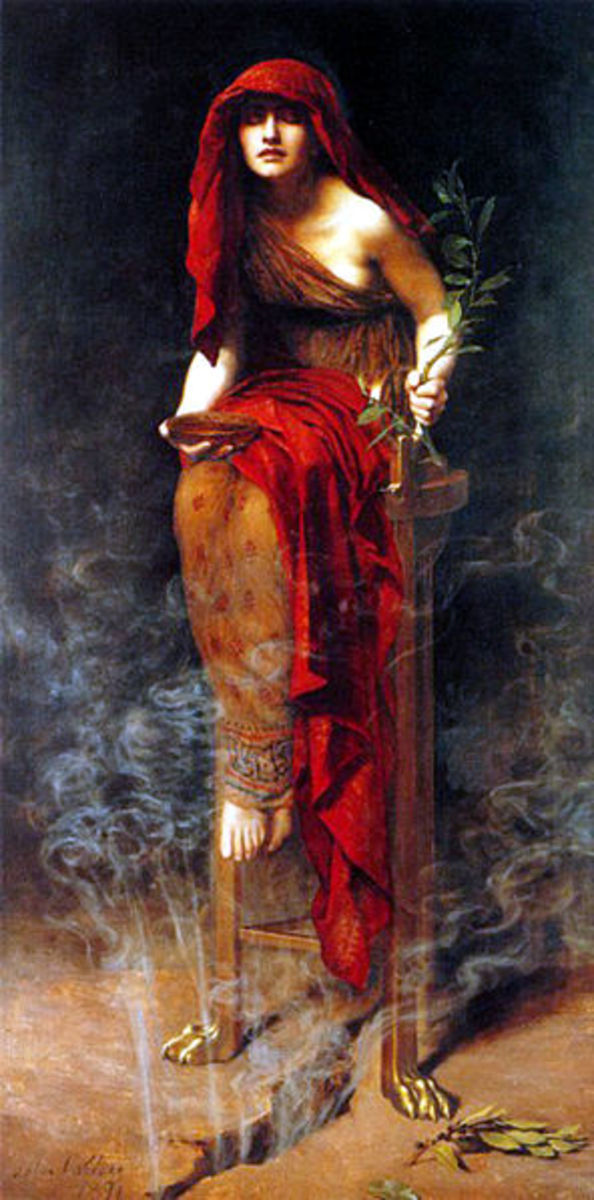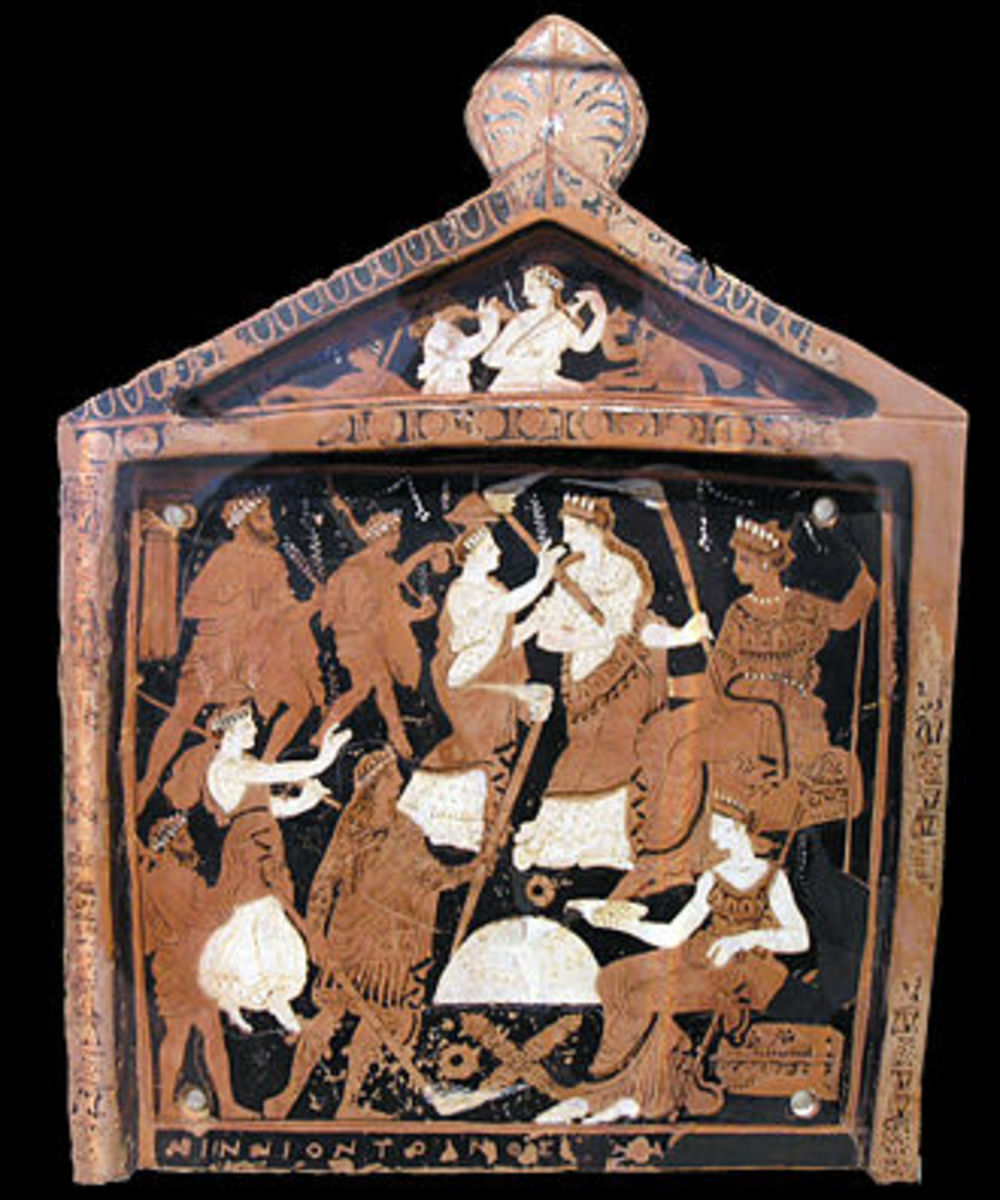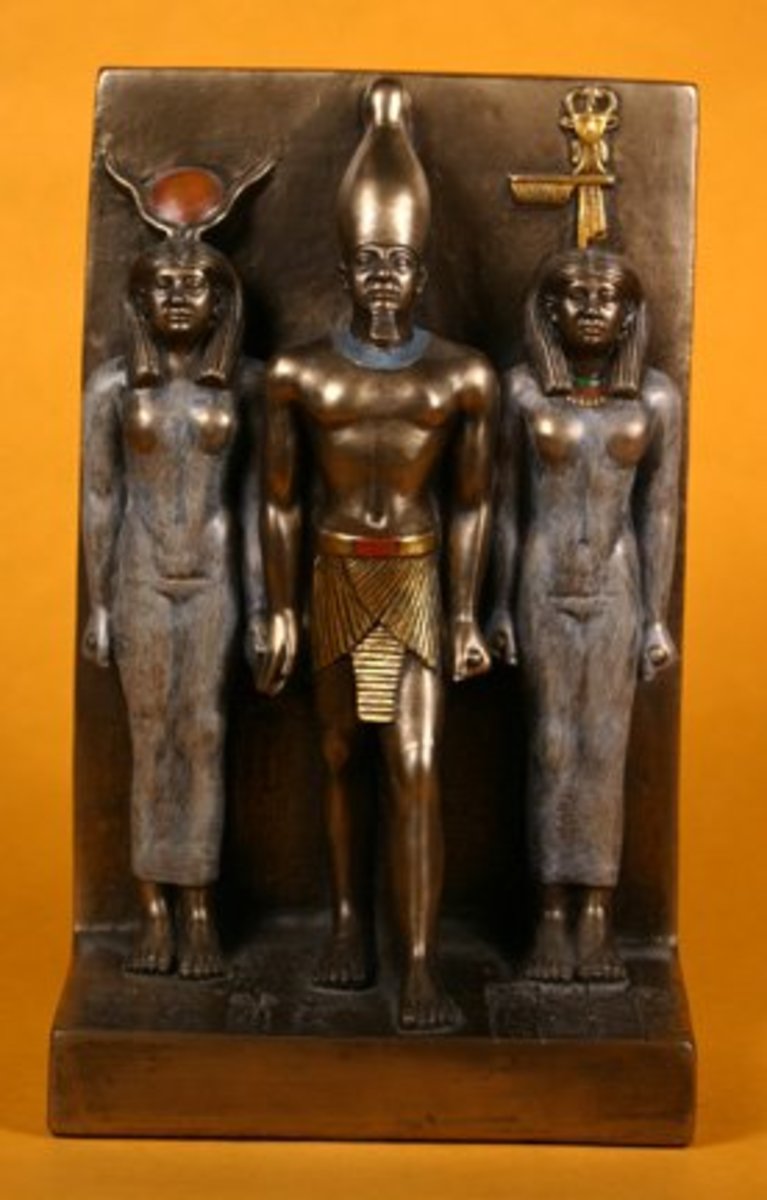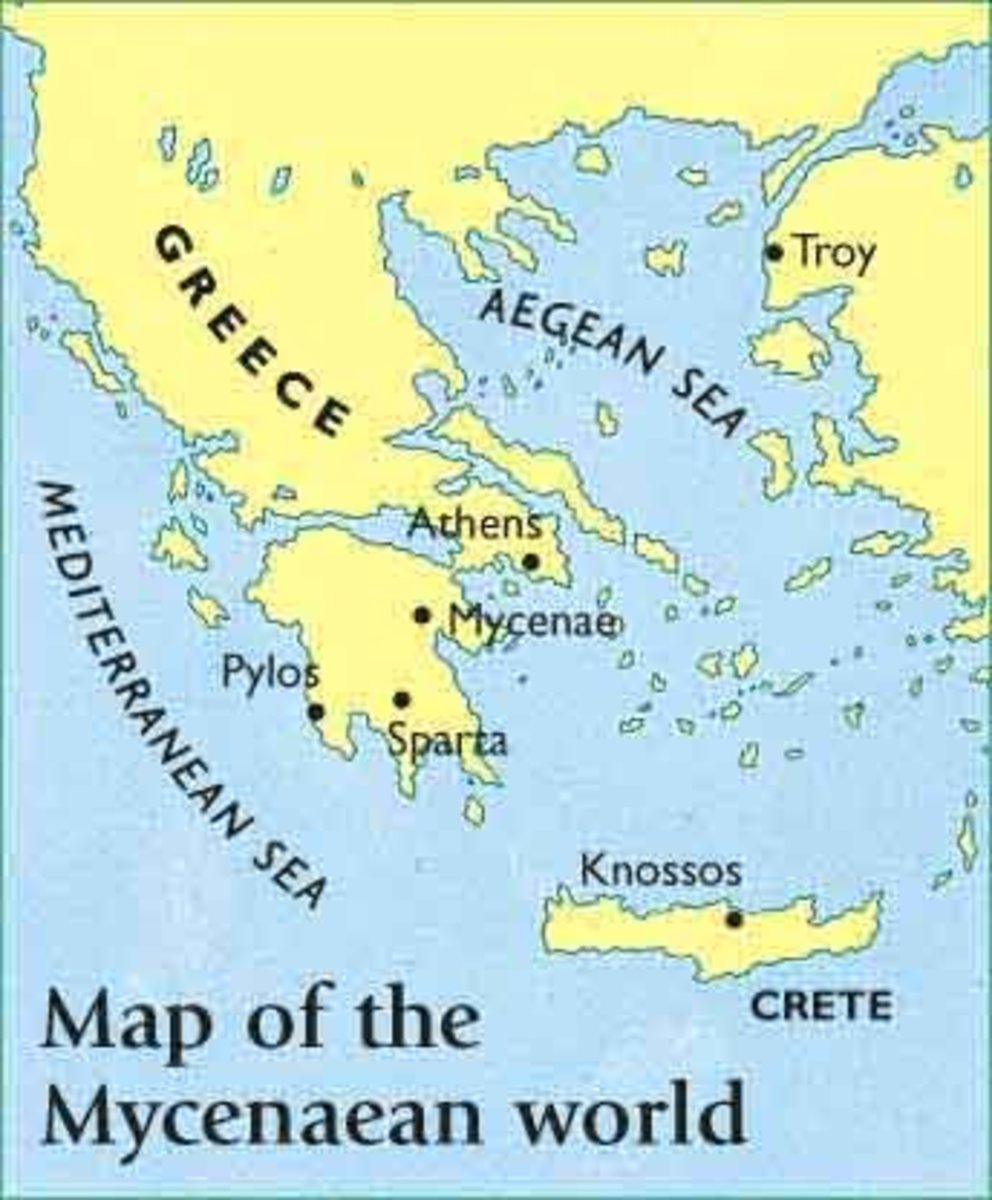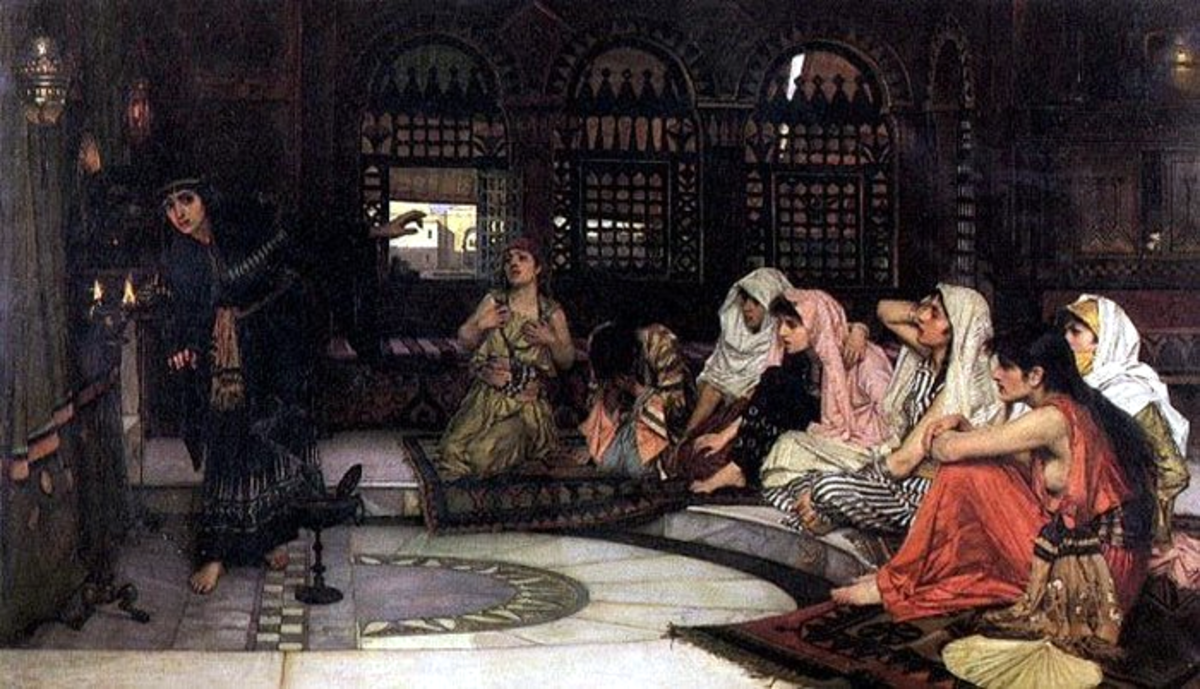- HubPages»
- Education and Science»
- History & Archaeology»
- Ancient History
Historical Period: Ancient Greece

Overview
Regarded by historians as a civilization lasting from around 1,100 BCE to 600 AD, scholars usually divide Ancient Greece into five different eras.
The first, known as the Greek Dark Ages, started after the fall of the Mycenaean civilization around 1,100 BCE. Due to the abandonment of the Mycenaean writing system, scholarly understanding of this time relies on archaeological research. It is believed settlements during this period were small and scattered with no attempt to rebuild destroyed structures.
In the 8th century BCE, urban city-states began to form, starting the Archaic Greek era. This period saw an increase in population and significant developments in politics, economics, international relations and culture. The Greek alphabet, earliest surviving Greek literature, monumental sculpture, red-figure pottery and democracy began in this era which lasted until 479 BCE and the second Persian invasion.
The Classical Greek era lasted about 200 years starting with the annexation of Greece by the Persian Empire and its later independence. Classical Greece influenced much of western civilization, such as its politics, artistic thought, scientific thought, literature, theater and philosophy. Historians cite the closing of the Classical period to coincide with either the fall of the last Athenian tyrant in 510 BCE or the death of Alexander the Great in 323 BCE.
As Rome emerged, Ancient Greece went through its Hellenistic period where its cultural influence peaked in Europe, North Africa and Western Asia. Compared to the Classical Era, the Hellenistic period is considered transitional, full of degeneration. Nevertheless music, mathematics, philosophy, science, architecture, theater, literature, exploration and the arts continued to flourish.
Finally, Greece came under Roman rule in 146 BCE, though some city-states partially maintained independence. Due to Greek culture’s influence on Roman culture there were no considerable changes until the second and third centuries when Greece was divided into provinces. Eventually the Western Roman Empire fell and Greece became the center of the Eastern Roman, or Byzantine, Empire.
Culture
Greece is considered by many to be the cradle of Western culture. Its music, largely structured on the lyre and other string instruments, depended on the structure of the Pythagorean scale constructed of pure perfect fifths and octaves. A great deal of what is known about music’s character and how it functioned in society comes from pottery and other forms of art.
There were several traditions of Ancient Greek art and authors of the time are stated to have believed the most respected form were panel paintings, individual mobile paintings on wooden boards. It is also believed sculptures in Greece were colorfully painted, though the color has faded over the years due to intense weathering. They were usually composed of marble or bronze.
The Greeks are also responsible for the first recorded works in western literary tradition, including the epic poems of Homer and Hesiod, the lyrical poetry of Sappho and Pindar and the philosophy of Plato. Further, Aristotle was the first to formulate the criteria for literary criticism.
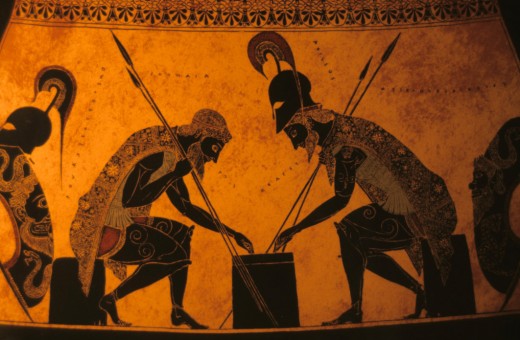
Science & Technology
Numerous inventions are credited to the Ancient Greeks in spite of a failure to develop what technology they had. The reason for this failure was because manual labor was despised and applying science to it meant losing societal status. Nevertheless, the Archimedes’ screw, streets, cranes, plumbing, spiral staircases, winches, showers, central heating, astrolabes, lighthouses, water wheels, chain drives and water mills were among the inventions created during this time.
Sociological Timeline
- 776 BCE - First Olympic games
- 743-724 BCE - First Messenian War
- 754 BCE - Polydorus becomes king of Sparta
- 719 BCE - Polydorus murdered
- 710-650 BCE - Lelantine War
- 687 BCE - Annual office of Archon established in Athens, any qualified citizen can be elected
- 685-665 BCE - Second Messenian war
- 645-560 BCE - Spartan wars with Tegea
- 621 BCE - Athenian lawgiver Draco issues harsh code of laws
- 590 BCE - Greek poet Sappho flourishes on island of Lesbos
- 569 BCE - Pythagoras born
- 510 BCE - Pythagoras establishes his own school
- 507 BCE - Cleisthenes establishes democracy in Athens
- 500 BCE - Death of Pythagoras
- 490 BCE - Battle of Marathon
- 480 BCE - Battle of Thermopylae; Battle of Artemisium; Battle of Salamis
- 479 BCE - Battle of Plataea; Battle of Mycale
- 449 BCE - Herodotus writes History of Greco-Persian War
- 435 BCE - Phidias completes Statue of Zeus at Elis
- 432 BCE - Parthenon constructed
- 431-404 BCE - Peloponnesian War
- 429 BCE - Hippocrates believes diseases have physical causes
- 428 BCE - Plato born
- 411 BCE - Democracy ends in Athens
- 401 BCE - Death of historian Thucydides
- 400 BCE - Philosopher Democritus develops atomic theory
- 399 BCE - Socrates condemned to death
- 347 BCE - Death of Plato
- 342 BCE - Aristotle begins teaching Alexander the Great
- 336 BCE - Alexander the Great succeeds father Philip II
- 332 BCE - Alexander the Great conquers Egypt
- 331 BCE - Alexander the Great conquers Persian Empire
- 329 BCE - Alexander the Great conquers Samarkand
- 323 BCE - Death of Alexander the Great
- 323-322 BCE - Lamian War
- 322-320 BCE - Frist War of the Diadochi
- 320-311 BCE - Second War of the Diadochi
- 310 BCE - Zeno of Citium starts school for stoicism in Athens
- 307 BCE - Epicurus stars school of philosophy in Athens
- 301 BCE - Battle of Ipsus
- 280-275 BCE - Pyrrhic War
- 274-271 BCE - First Syrian War
- 267-262 BCE - Chremonidean War
- 265 BCE - Archimedes develops Archimedes’ screw, theory of specific gravity, center of gravity and anticipates a discovery of integral calculus
- 260-253 BCE - Second Syrian War
- 246-241 BCE - Third Syrian War
- 419-217 BCE - Fourth Syrian War
- 214-205 BCE - First Macedonian War
- 203-200 BCE - Fifth Syrian War
- 200-196 BCE - Second Macedonian War
- 192-188 BCE - Roman-Syrian War
- 172-167 BCE - Third Macedonian War
- 170-168 BCE - Sixth Syrian War
- 150-148 BCE - Fourth Macedonian War
- 88 BCE - Athens sacked by Roman forces

